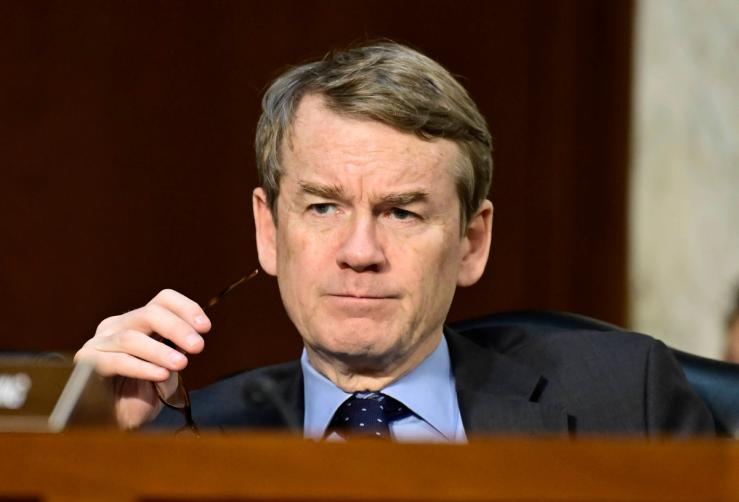The News
Colorado is no longer a presidential battleground. Its ballot this year will still say a lot about US politics.
The state’s voters will decide on a sweeping proposal to reshape its elections, backed by big business and opposed by the state parties, that would have a huge impact on congressional races, replacing traditional partisan primaries with a new nonpartisan system.
Colorado is one of seven states considering dramatic changes to the way their citizens vote, though the responses to voters’ — and big donors’ — anger at the system vary widely. Nevada, Arizona, Idaho, Montana, South Dakota, and Oregon, as well as Washington, DC are considering options ranging from new top-two systems in Arizona and South Dakota to open primaries and ranked-choice general elections in Colorado, Nevada and Idaho. Then there’s Alaska, which will vote this fall on whether to roll back its own unpredictable open primary and ranked-choice arrangement, which ironically has inspired other states’ forays into election changes.
Colorado is considering a move from traditional partisan primaries to a nonpartisan top-four primary, with an instant ranked-choice runoff general election. Backers say the move would boost voter participation and encourage more serious legislators, but critics counter that it would lead to chaos and more dark money.
The shift is designed to chip at political parties’ control of elections even as it risks empowering big donors to sway the open system — and it’s driving a wedge between elected officials in both parties. Both of Colorado’s state parties oppose the proposal, alongside one of its Democratic senators and MAGA-friendly Rep. Lauren Boebert. Supporters of the voting changes include Colorado’s Democratic governor, many of its big-city mayors and its other Democratic senator.
“In the time that I’ve represented Colorado, I’ve never had a single person, not one person, come up to me and say this is the way we should change our system,” Democratic Sen. Michael Bennet, who’s opposed to the voting changes, told Semafor. “If it passes and it turns out it doesn’t work, how are we going to fix it?”
His fellow Colorado Democratic senator disagrees; John Hickenlooper says the change is a “win-win” that could increase voter participation and encourage more people to run as candidates. And former Republican congressman Ken Buck sees the remodeled primary as a chance to help his party become more competitive in a Democrat-dominated state.
Buck, who narrowly lost a 2010 Senate race to Bennet, also hopes a new Colorado primary will attract “the right candidates” for federal office: “I have been frustrated during my time in Congress with some of the social media darlings and folks who aren’t interested in the legislative side of the business,” he told Semafor. “I’ve never heard, in my lifetime, as much discontent from people about both sides.”
In this article:
Know More
Alaska is currently the only state with a similarly structured top-four nonpartisan primary. Those four candidates advance to a general election that counts voters’ second and third choices in races where no candidate wins a majority on the first round of ballot counting.
Colorado has many more voters. And it’s not at all clear which party would benefit most. In Alaska, Democratic Rep. Mary Peltola capitalized on the state’s quirky system, as did moderate Republican Sen. Lisa Murkowski. Maine still uses partisan primaries, and Democratic Rep. Jared Golden won his seat in 2018 through its ranked-choice instant runoff.
Colorado and Nevada voting changes that get adopted this year could be tested in competitive elections as soon as 2026 or 2028. Hickenlooper, for one, is up for reelection in two years.
In the Centennial State, at least, it’s hard for Republicans to do too much worse than they’ve been doing in the Trump era. Buck said he hears from Republicans who “are happy that I’m taking this position so that they don’t have to” tangle with the state party over its opposition. He made clear that he doesn’t plan to test it as a candidate, saying he’s happy with his new life as a private citizen.
“Democrats have figured out a way in Colorado with third-party candidates to make sure that we don’t end up with a Republican victory, and so this system would nullify that,” Buck said. “They’ve also supported the most radical Republican candidate primaries to try to get the easiest candidate to win to beat in the general election. And again, this system would prevent that.”
One prominent government watchdog group has warned the new primary would reward “candidates with more money” who can flood the open-party zone; it’s true that in Colorado, as in other states, major donors support the voting changes. Chevron, the state’s Chamber of Commerce and wealthy businessman Kent Thiry are all backing the shift, raising the ire of Bennet.
“These guys are just imposing, basically, their game theory on the American election system,” Bennet said. “That’s wrong. What they are doing is undemocratic.”
Burgess’s view
There’s a reason Colorado’s major political parties don’t like the proposed election system: It would significantly water down their power, making coordinated campaigns more difficult and turning Colorado’s elections into a literal Wild West.
It could also, if Alaska is any example, weed out more extreme candidates in both parties. But it’s hard to say just how it would play out in Colorado and Nevada, considering their swingy natures and larger populations. It’s possible that the result would be two or even three members of the same party advancing to the general election.
Other, smaller-scale election changes that are on the ballot in other states are more tested. In California and Louisiana, for example, top-two primaries often lead to compelling general election match-ups between members of the same party.
Bonus Buck
We couldn’t talk to Buck without asking who he’s supporting for president, since he says part of the reason he’s backing the Colorado voting proposal is because Kamala Harris and Donald Trump “are a perfect example of why we need to focus more on the process and making sure we get the right candidates.”
“I am considering not voting for either, because I’m just so frustrated. I can’t vote for Harris,” he said. “I have not committed and have expressed frustration more than appreciation for what [Trump] stands for.”


